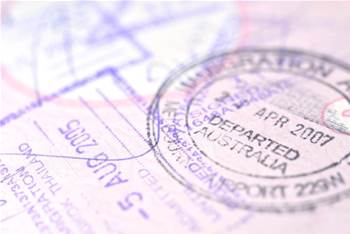The federal government is yet to sign off on a plan to use its new Pega-based permissions capability platform for visa applications, despite touting it as a way to digitise visas in the wake of its failed attempt to outsource Australia's visa systems.
The platform will see the government take a permission-based approach to services such as permits, registrations and licences across government, starting with incoming passenger cards.
At the time of the tender in October 2020, the Department of Home Affairs said the platform would also allow it to develop a “simple digital visa product”, in addition to the digital passenger declaration (DPD) for international travellers.
When Accenture was named the successful bidder almost a year later, there was no reference to the digital visa product, with the government instead suggesting that the platform could be used for other services in the future.
But Home Affairs has now revealed that Accenture’s $60.1 million in contracts for the permissions capability – which cover base capabilities for the platform and the DPD across five work orders – do not extend to the simple visa product.
“A simple visa was included in the request for tender documents, however, future permissions capability use cases such as visa (sic) are yet to be considered by government,” it said in answers to question on notice from senate estimates.
“Accordingly, no contract for a simple visa (anticipated fourth work order under the deed of standing offer for a permission capability) has been entered.”
However, the department said it could issue additional work orders “for the delivery and support of the permissions capability and use cases” under the deed of standing order as required by government.
“Each decision to approve a work order is subject to a separate delegate approval and therefore whether or not additional work orders will be released cannot be determined until such time a future use cases are approved by government,” it said in another set of replies to questions on notice.
The government has provided at least $135 million to the permission capability platform to date, including the $74.9 million allocated in the 2020-21 budget and the $60.1 million handed out to Accenture.
Total funding for the project is unknown as the government has kept funding in the mid-year economic and fiscal outlook (MYEFO) under wraps due to “commercial-in-confidence sensitivities”.
“Disclosing the overall funding information could undermine potential future commercial negotiations with vendors,” the department said.
As at the end of December, Accenture had been paid almost $7.4 million of the $60.1 million it will reap over three years under the five work orders.
Earlier this month, the Sydney Morning Herald revealed the initial version of the DPD app had received hundreds of scathing reviews in its first month, resulting in a score of 1.1 stars out of five on Google Play and 1.3 stars out of five on Apple’s App Store.
At present, users are required to fill out a paper-based incoming passenger card in addition to the DPD, an experience that will endure until June, when Home Affairs plans to integrate the app with border systems.
Home Affairs plans to trial a “digitised incoming passenger card for selected passengers on selected flights ... once the DPD has been settled into production and passengers are familiar with the new applications”.


.png&h=140&w=231&c=1&s=0)























